Columbus, OH — Last month a delegation of American harness racing breeders traveled to France to discuss collaboration with French trotting officials. Over the years, relationships were developed, and discussions had taken place about ways for more collaboration between the two countries.
The June trip by the Americans, following an invitation by France’s LeTrot organization, which oversees most of the details involving the country’s trotting sport, put a concept for selling and importing French horses in the United States on a fast track.
The American breeders on the trip included Jim Simpson of Hanover Shoe Farms, Kevin Greenfield of Hickory Lane Farm, Tom Grossman of Blue Chip Farms, Dr. Andy Roberts from Kentucky, and David Reid, who breeds horses under the banner of Moni Market Breeders and also operates Preferred Equine Marketing sales agency.
Although the North American foal crop has stabilized in recent years, racetracks are still facing horse shortages.
Meanwhile, according to LeTrot data, the French trotting population has a surplus of horses that can’t fit in classes where they would be competitive. The race classification structure in France is based on a horse’s earnings, and horses will naturally face tougher competition as they earn more purse money and climb the classification ladder.
Ideas were exchanged about the specifics of offering French horses for sale to the U.S. market. Reid’s company, Preferred Equine Marketing, has an online platform that was chosen as a sale vehicle and the first sale is now on the calendar, scheduled to take place on Monday (July 25).
The French horses to be sold were selected by a panel assembled by LeTrot. The panel conducted a review to identify horses that could be suitable for U.S. racing. The panel, which included bloodstock agents, trainers and LeTrot staff, reviewed over 70 French trotters to identify which horses could be offered for sale.
“This process has gone smoothly,” said Emmanuelle Morvillers, who heads the International department at LeTrot. “Piroplasmosis tests were required to enter a horse, and then the team of experts narrowed the list and chose to see 21 horses on the track.”
In addition to the scrutiny by LeTrot’s panel, potential buyers of the French horses will have the common visual tools to review the horses offered for sale.
“All horses entered for sale will have extensive photos, race and walking videos, as well as health certificates and veterinary exams,” said Reid. “The review committee in France has put a lot of effort into recruiting these horses and LeTrot has been very cooperative in all efforts to make the detailed arrangements for pre-sale paperwork, transportation, registration, photos and videos.”
LeTrot has submitted the names of 13 horses for sale, with seven to be sold on Monday (July 25) and six slated for sale on Aug. 1. The roster for the horses to be sold on July 25 will be posted on Thursday (July 21).
“We now have the experience of organizing selections,” said Morvillers. “I think that if this first sale is successful, it can be organized again in a couple of months. Perhaps we can find a way to offer three to four sales per year?”
Reid is also optimistic about the potential of importing French trotters to North America via online sales.
“Over the past number of years, the demand for pacers to be imported from Down Under has seemed to be very successful,” Reid continued, “so the thought is to open up the markets and be able to import trotters from France and other countries in the future to compete here in North America. With the conditions being more flexible in the U.S. and Canada, that will allow the French horses to find races to compete in a host of classes based on career earnings and pari-mutuel wins.”
For more information, click here.
From the USTA

 USA
USA Canada
Canada Australia
Australia New Zealand
New Zealand Europe
Europe UK / IRE
UK / IRE


